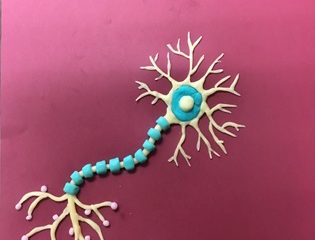
Daughters Kristin (left) jumping out of a perfectly good plane , and Karen (right) recently in Aspen, Colorado
Here is what I am reading about today:
“The interactome or protein interaction network for autism spectrum disorders developed by researchers at Baylor College of Medicine and the Jan and Dan Duncan Neurological Research Institute at Texas Children’s Hospital in collaboration with scientists at the Center for Cancer Systems Biology (CCSB) at Dana-Farber Cancer Institute demonstrates how protein pathways converge, diverge and interact to arrive at the same devastating condition.”
““The fact that people’s perceptions of healthfulness vary with the name of the food item isn’t surprising,” Irmak said. “What is interesting is that dieters, who try to eat healthy and care about what they eat, fell into these ‘naming traps’ more than non-dieters who really don’t care about healthy eating.””
“The study — led by Matthew State, M.D., Ph.D., the Donald J. Cohen Associate Professor of Child Psychiatry, Psychiatry and Genetics — looked at more than 1,000 families in which there was a single child with an autism spectrum disorder, an unaffected sibling and unaffected parents. The team, including postdoctoral fellow and first author Stephan Sanders from Yale, compared individuals with autism to their siblings to determine what types of genetic changes distinguished the affected child from the unaffected child.”
“In recent years, much sleep research has focused on memory, but now results of a new study by University of Massachusetts Amherst psychologist Rebecca Spencer and colleagues suggest another key effect of sleep is facilitating and enhancing complex cognitive skills such as decision-making.”
“The researchers telephoned a representative sample of nearly 400 Americans to ask them about what they regret. The most frequent regrets of Americans are about love, education, and work. Romantic regrets—America’s most common—focused on lost chances for potential romances, and relationships that did not live up to their potential.”
“Men and women deployed to Iraq and Afghanistan in 2007 and 2008 experienced very similar levels of combat-related stress and post-deployment mental health impacts during the first year following return from deployment, researchers reported in the Journal of Abnormal Psychology, published by American Psychological Association.”


